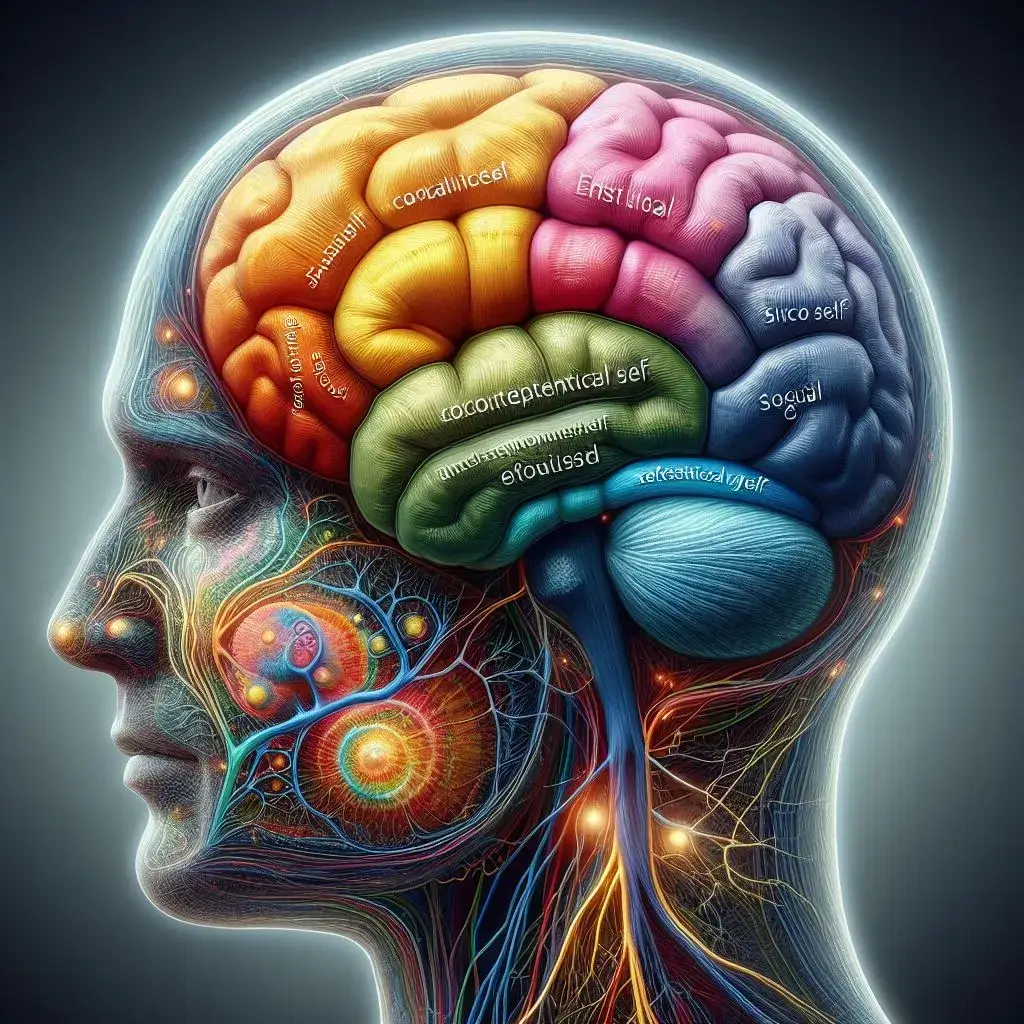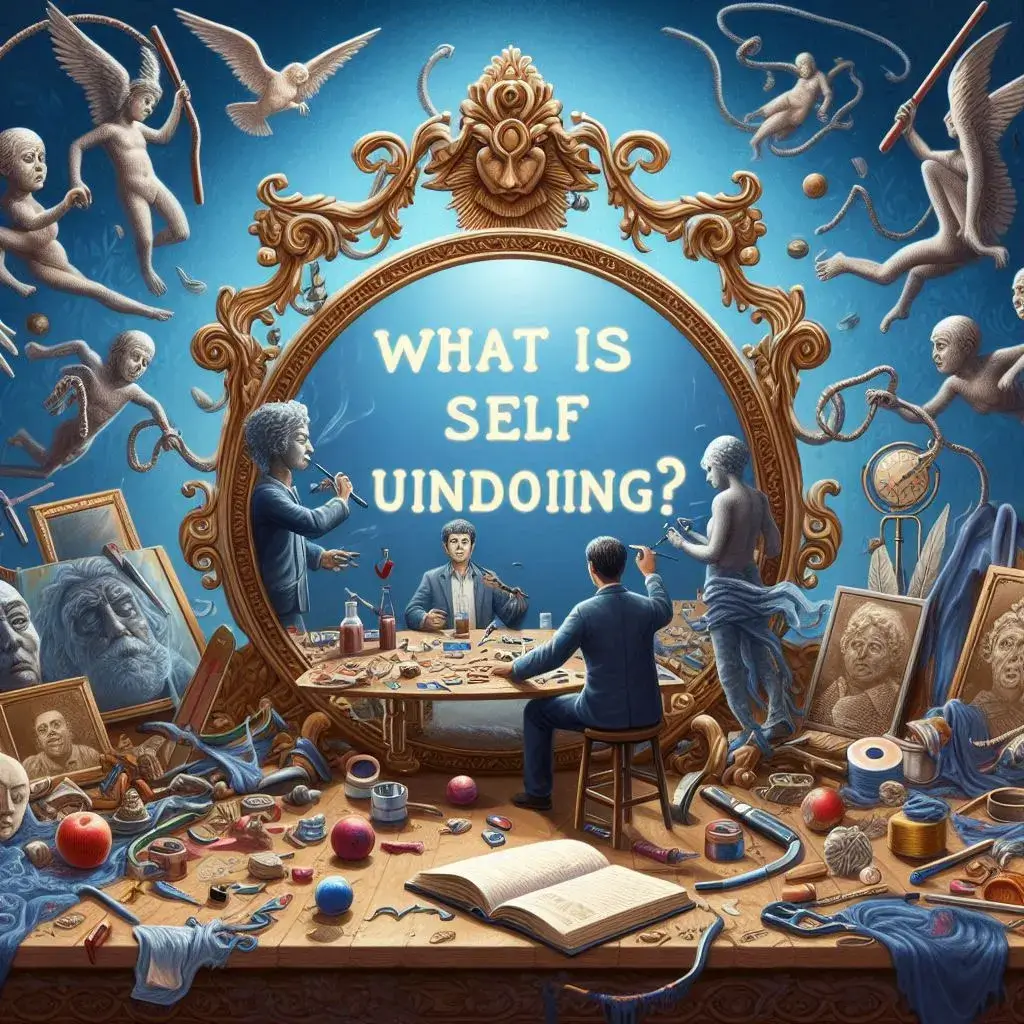Conceptualized self? What is Conceptualized self? I think you didn’t notice before and you didn’t imagine what i describe in this articule. This is like looking in a mental mirror to understand your thoughts, feelings, and beliefs. It’s the story you tell yourself about who you are and what you’re capable of. Don’t understand? leave it. I describe it futher with more explanation, That’s include research, personal experience, case studies, references and much more!
What’s Really The Means Of Conceptualized Self or Self Concept?
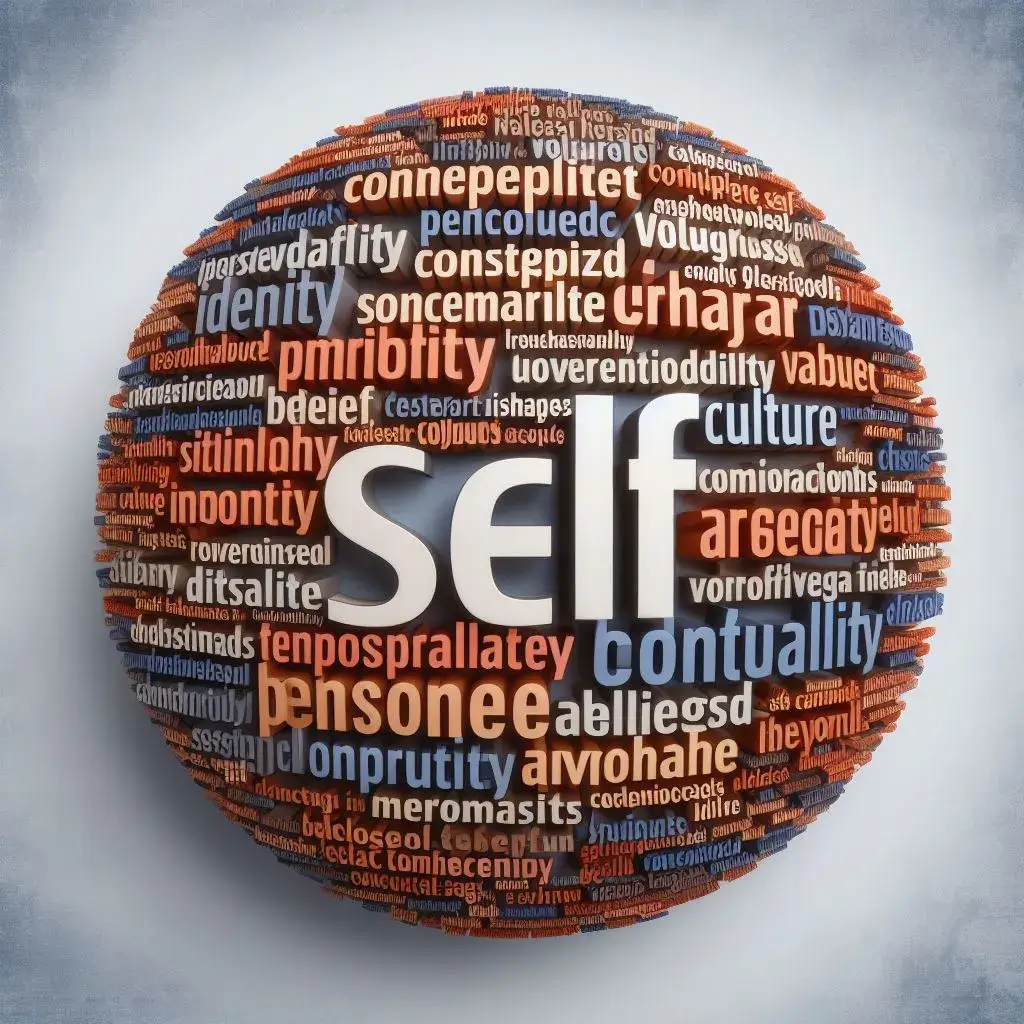
The conceptualized self refers to the mental representation we create about ourselves—our beliefs, values, and perceptions. This conceptualized self is like the mental snapshot you carry of yourself. Knowing your conceptualized self is like having a superhero manual. It helps spot your strengths, clock your weaknesses, set goals, and rock those life choices. When you’re vibing with who you truly are, tackling life’s hurdles and chasing your dreams becomes a whole lot smoother.
What is an example of a conceptualized self
An example of a conceptualized self is a person who sees themselves as a creative and artistic individual. They may hold beliefs such as “I am a talented painter,” “I have a unique perspective on the world,” and “I express myself best through art.”
This conceptualized self influences their behavior, such as pursuing a career in the arts, enrolling in art classes, and surrounding themselves with other creative individuals. It also influences their self-esteem, feeling proud of their artistic abilities, and their self-efficacy, believing they can create beautiful and meaningful art. Their identity may also be tied to their conceptualized self, seeing themselves as part of the artistic community and valuing creativity and self-expression.
[blockquote align=”none” author=” Dr. Kristin Neff”]The conceptualized self is the image or mental representation we have of ourselves. An example is seeing oneself as a compassionate caregiver[/blockquote]Deconstructing You: Components of the Conceptualized Self
Self-image: Imagine this as your mental selfie – how you see yourself, from looks to skills and personality. It’s like your personal filter influenced by what others say and how you stack up against them.
Self-esteem: This is like the overall rating you give yourself – the feels about your worth and self-respect. High vibes mean confidence, competence, and good vibes, while the low ones bring in feelings of not quite measuring up.
Self-concept clarity: Think of this as your self GPS – how clear and steady you are about who you are. High clarity means a rock-solid self-definition, while low clarity might have you second-guessing your identity.
Self-efficacy: Ever felt like you can totally nail a task? That’s self-efficacy – the belief that you can rock a goal. High vibes boost motivation and performance, while low vibes might make you dodge and drop the effort.
Possible selves: This component refers to your ideas about who you might become in the future. It’s like daydreaming about future you – the successful writer or the supposed failure. These daydreams play tag with your goals, motivation, and how you roll.
Self-schemas: Picture these as your mental blueprints – structures you use to sort and understand info about yourself. Positive vibes see you as a rockstar, while negative ones might have you feeling a bit meh. These blueprints can stir up how you see things, remember stuff, and how you roll.
What is attachment to conceptualized self?
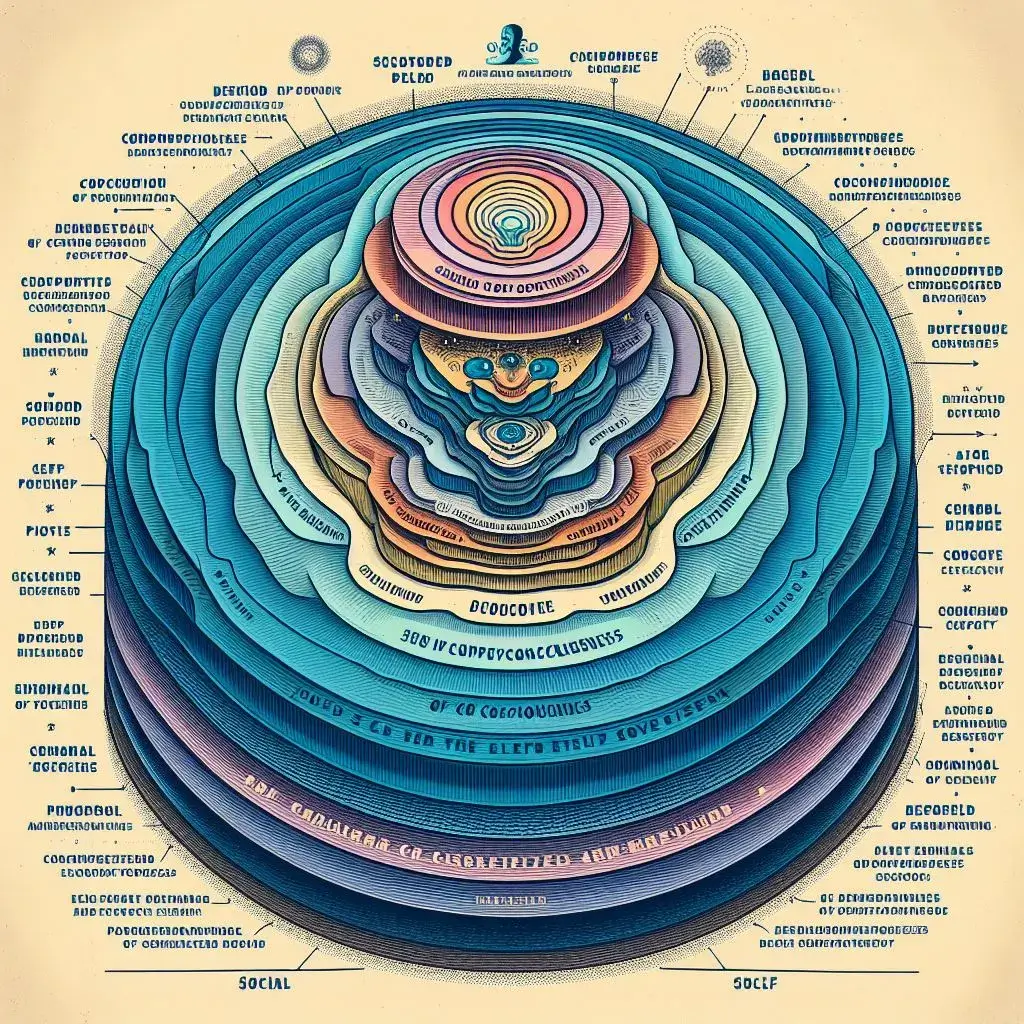
Attachment to the conceptualized self refers to the degree to which an individual identifies with their self-concept or self-image, and the extent to which they rely on it as a source of security and stability. Attachment to the conceptualized self can be either healthy or unhealthy, depending on the nature of the self-concept and the degree of attachment.
Healthy attachment to the conceptualized self is characterized by a positive and realistic self-concept, and a secure sense of identity. Individuals with healthy attachment to their self-concept are able to acknowledge their strengths and weaknesses, and are comfortable with who they are. They are also able to adapt to new situations and challenges without feeling threatened or overwhelmed.
On the other hand, unhealthy attachment to the conceptualized self is characterized by an overly rigid or idealized self-concept, and an excessive reliance on it as a source of self-worth. Individuals with unhealthy attachment to their self-concept may feel threatened by any challenge to their self-image, and may engage in defensive behaviors such as denial, projection, or avoidance. They may also struggle with low self-esteem, self-doubt, and anxiety.
[blockquote align=”none” author=”Dr. Lisa Firestone”]Attachment to conceptualized self is the degree to which one identifies with and is attached to their self-image or self-concept.[/blockquote]Unhealthy attachment to the conceptualized self can be caused by a variety of factors, including childhood experiences, cultural influences, and individual personality traits.
For example, individuals who were raised in an environment that placed a high value on achievement and perfectionism may develop an unhealthy attachment to their self-concept as a way of meeting those expectations. Similarly, individuals who have experienced trauma or adversity may develop an unhealthy attachment to their self-concept as a way of coping with those experiences.
It is important to note that attachment to the conceptualized self is not necessarily a bad thing. A healthy attachment to a positive and realistic self-concept can provide a sense of stability, security, and self-worth. However, when attachment to the self-concept becomes excessive or rigid, it can interfere with an individual’s ability to adapt to new situations and challenges, and can lead to negative emotions and behaviors.
The Impact of the Conceptualized Self on Our Lives
let’s break it down. The conceptualized self – that mental image you carry around – ain’t just a background player. It’s like the DJ setting the vibe for how you groove in life.
Imagine it like this: Your self-image, how you rate yourself (self-esteem), the clarity you got about who you are, and the belief in your own powers (self-efficacy) – they team up to play a major role in the choices you make, the goals you chase, and how you tackle life’s hurdles.
Self-esteem: If your self-image is on fire, you’re rocking high self-esteem – feeling like a champ. But if it’s giving off meh vibes, that could lead to doubts, low self-esteem, and feeling not up to snuff.
Goal-setting: Your self-concept shapes the goals you set. With a clear and positive self-image, you’re likely to aim high and hustle through challenges. It’s like having a GPS for your ambitions.
Social relationships: Your self-concept influences how you roll in social scenes. Positive self-vibes make you see yourself as likable and capable, leading to positive social vibes. Negative self-vibes might push you towards social hibernation.
Performance: Your conceptualized self is like the director of your life’s performance. If it’s pumping positivity, you’re likely to believe in your skills and hit the high notes in work, school, or sports.
What is the ego conceptualized self
The ego conceptualized self refers to the aspect of the self that is associated with the ego, which is a psychological construct originating from Sigmund Freud’s psychoanalytic theory. The ego is seen as the rational and logical part of the personality that mediates between the unconscious desires of the id and the demands of reality. In the context of the conceptualized self, the ego can be thought of as the part of the self that we consciously identify with and present to the world.
The ego conceptualized self is often associated with a person’s sense of self-esteem, self-worth, and self-efficacy. It is the aspect of the self that we use to evaluate ourselves and make decisions about our behavior and goals. A positive ego conceptualized self is characterized by high self-esteem, a sense of competence and control, and a positive self-image. In contrast, a negative ego conceptualized self is characterized by low self-esteem, a lack of confidence, and a negative self-image.
It is important to note that the ego conceptualized self is just one aspect of the self, and that people may also have other aspects of their self-concept that are not necessarily tied to the ego. Additionally, the ego concehttps://selfdiscovery.pro/9-hidden-metaphors-describing-personality/ptualized self can be influenced by various factors, including social and cultural contexts, past experiences, and individual personality traits.
Conceptualized Self in the Inflexahex Model: Case Conceptualization and Psychological Flexibility
The Incremental Flexibility Model (IFM) is a framework for understanding the role of the conceptualized self in psychological flexibility and well-being. According to this model, the conceptualized self can either facilitate or hinder psychological flexibility, depending on its characteristics.
In the IFM, psychological flexibility is defined as the ability to adapt to changing circumstances and to persist in pursuing goals despite setbacks and obstacles. The model suggests that individuals with a more flexible conceptualized self are better able to respond effectively to challenging situations and to maintain their well-being.
The IFM proposes that there are two key dimensions of the conceptualized self that are particularly important for psychological flexibility: self-concept clarity and self-concept complexity.
Self-concept clarity refers to the degree to which an individual’s self-concept is clear, consistent, and stable. Individuals with high self-concept clarity have a clear sense of who they are and what they value, and are less likely to experience confusion or uncertainty about themselves.
Self-concept complexity refers to the degree to which an individual’s self-concept is multifaceted and differentiated. Individuals with high self-concept complexity have a more nuanced and complex view of themselves, recognizing that they have many different facets and that these facets can change over time.
According to the IFM, individuals with high self-concept clarity and complexity are more likely to be psychologically flexible, as they are better able to adapt to changing circumstances and to respond effectively to challenges.
Case Conceptualization:
In the context of case conceptualization, the IFM can be used to identify the client’s conceptualized self and to understand its impact on their psychological flexibility and well-being. This can involve assessing the client’s self-concept clarity and complexity, as well as exploring their beliefs and attitudes about themselves and their abilities.
For example, a client who presents with anxiety and low self-esteem may have a self-concept that is characterized by low self-concept clarity and complexity. They may view themselves in a very narrow and negative way, and may have difficulty recognizing their strengths and abilities.
Intervention:
Interventions targeting the conceptualized self can focus on increasing self-concept clarity and complexity, as well as promoting psychological flexibility. This can involve helping the client to develop a more nuanced and positive view of themselves, as well as encouraging them to engage in activities that challenge their self-concept and promote growth.
For example, I work with the client to identify their strengths and values, and to develop a more balanced and realistic view of themselves. I also encourage the client to engage in activities that challenge their self-concept, such as trying new things or taking on new roles.
Case Studies
Meet Emily’s Journey: From Shy to Confident
- Emily’s transformation from a shy individual to a confident performer was inspired by the book “Quiet” by Susan Cain. This book helped her understand and embrace her introverted nature. Emily started participating in activities mentioned in the book, like drama and public speaking classes, which helped her discover her passion for performing.
Story Spotlight: Emily, initially reserved, stumbled upon “Quiet” while seeking self-help books. The book resonated with her, highlighting the strengths of introverts. Encouraged by the book’s insights, she decided to step out of her comfort zone. Emily’s journey involved joining a local drama club and attending public speaking workshops. Over time, she not only found her voice but also gained confidence. The book served as a guiding light, empowering her to redefine her conceptualized self from a shy individual to a confident and expressive performer.
Recommended Read: The Power of Introverts in a World That Can’t Stop Talking” by Susan Cain
Can You Overcome Your Self-Concept Limitations?
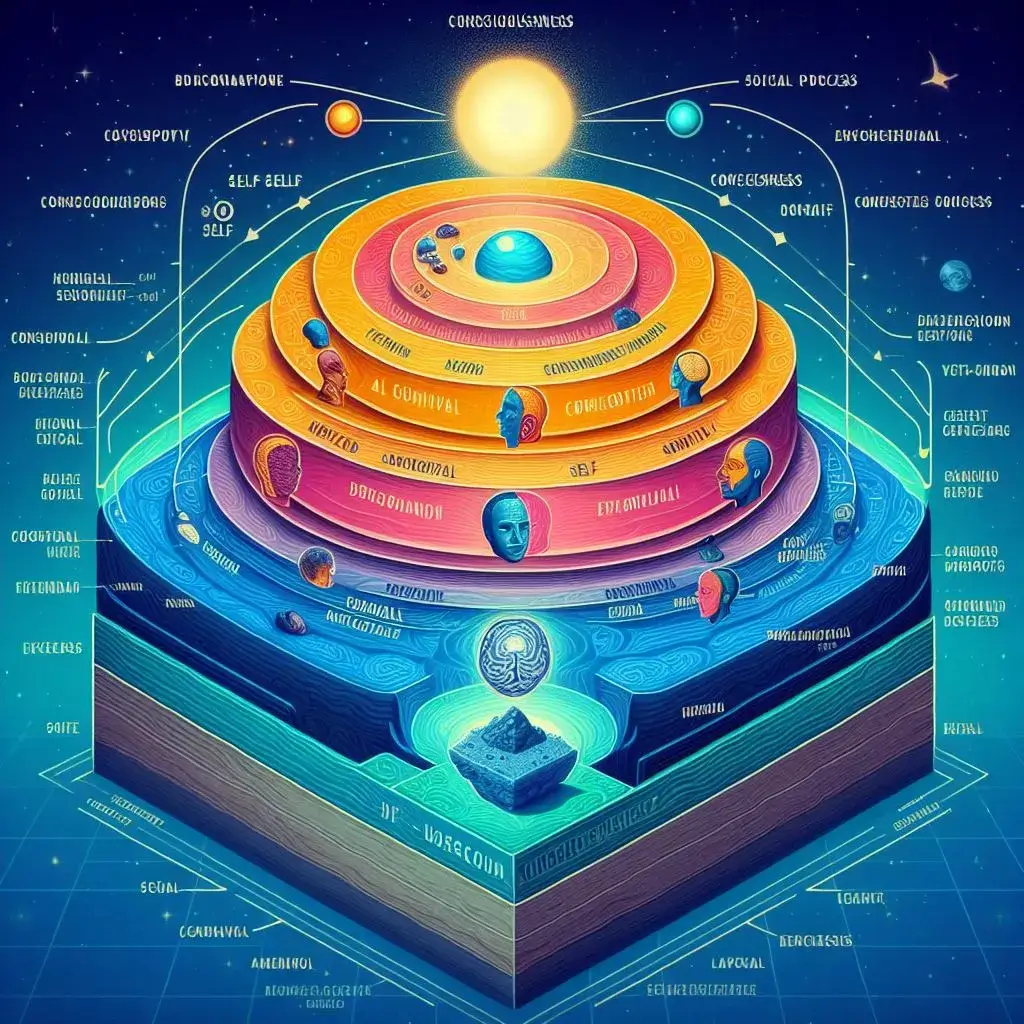
“Breaking the Conceptualized Self” refers to the idea of challenging and transcending the fixed and limiting beliefs and self-images that individuals have about themselves. It involves recognizing and questioning the assumptions and narratives that shape one’s sense of identity, and exploring alternative perspectives and possibilities. This process can lead to greater self-awareness, flexibility, and personal growth.
While the conceptualized self is a natural and important aspect of human psychology, it is possible to break free from its constraints and develop a more flexible and adaptive sense of self.
Strategies for Developing a Healthy Conceptualized Self
Developing a healthy conceptualized self involves creating a balanced and realistic view of oneself that is based on self-awareness, self-compassion, and self-acceptance. Here’s the game plan:
Mindfulness Magic: Ever heard of mindfulness? It’s like the superhero move to break free. By tuning into the present moment without throwing shade at yourself, you can cultivate a more accepting and non-judgmental vibe towards who you are.
Challenge Accepted: Wanna shake things up? Dive into activities that flip the script on your usual self. New roles, fresh experiences, and stepping out of your cozy comfort zone – that’s how you challenge the status quo.
Cognitive-behavioral therapy (CBT): Enter the Cognitive-Behavioral Therapy (CBT) arena. It’s like the Jedi training of breaking free. Identify those negative thoughts, challenge ’em, and swap ’em out for positive and realistic vibes about yourself.
Reflect, Fam: Take a chill moment for some self-reflection. Dive into your thoughts, feelings, and moves. It’s like peeling back layers to understand who you are and what makes you tick.
Strength Spotlight: Find those strengths, fam. What are you rocking at? Put the spotlight on those abilities. It’s the secret sauce for building confidence and rocking a positive self-vibe.
Kindness Counts: Treat yourself like a VIP. Show yourself some kindness and understanding, just like you would with your ride-or-die friend. It’s all about building a compassionate and accepting view of the awesome human you are.
Feedback Fuel: Don’t shy away from feedback, fam. Ask for it, embrace the constructive stuff. It’s like having a reality check to keep that view of yourself in check.
Goal Getter: Set some goals, but keep it real. What aligns with your values and interests? Achievable goals boost your self-belief and give your life purpose.
Crew Love: Surround yourself with the A-team – people who got your back. Positive relationships are the secret sauce for a hot self-image and a feeling of belonging.
Talk Back to Negativity: Catch those negative thoughts trying to sneak in. Challenge them with facts and different angles. It’s like putting negativity on mute and cranking up the positivity.
Conclusion
In conclusion, the conceptualized self is like a big map guiding us in life. It’s not just a mirror; think of it like a superhero guide showing us what we’re good at and what we’re working on. Imagine it as a DJ picking the tunes for our life party. From how we see ourselves to the plans in our brain, all these bits make us who we are. But here’s the cool part—it’s not stuck. It’s like a canvas waiting for us to explore and decide what we want. Having a good view of ourselves means being aware, trying new stuff, and being kind to ourselves. It’s like knowing the power it has, understanding how it affects us, and exploring the parts of ourselves we haven’t seen yet. So, it’s basically a journey to being a balanced, real, and flexible version of ourselves.
References
- Campbell, J. D., Assanand, S., & Di Paula, A. (2003). The structure of self-concept clarity: Conceptualization, measurement, and validation. Journal of personality and social psychology, 84(2), 391-404.
- Epstein, S. (1973). The self-concept. Handbook of cognitive psychology, 4, 405-451.
- Higgins, E. T. (1987). Self-discrepancy: A theory relating self and affect. Psychological review, 94(3), 319-340.
- Freud, S. (1923). The ego and the id. SE, 19: 1-66.
- Markus, H. R., & Nurius, P. (1986). Possible selves. American Psychologist, 41(9), 954-969.
- Joshanloo, M. (2018). Self-concept clarity and its relationship with psychological well-being: A meta-analysis. Journal of Research in Personality, 74, 91-105.
- Assor, A., Roth, G., & Deci, E. L. (2004). The emotional costs of parents’ conditional regard: A self-determination theory analysis. Journal of Personality, 72(1), 47-87.
Markus, H., & Nurius, P. (1986). Possible selves. American Psychologist, 41(9), 954-969.
Rogers, C. R. (1951). Client-centered therapy: Its current practice, implications, and theory. Houghton Mifflin.
